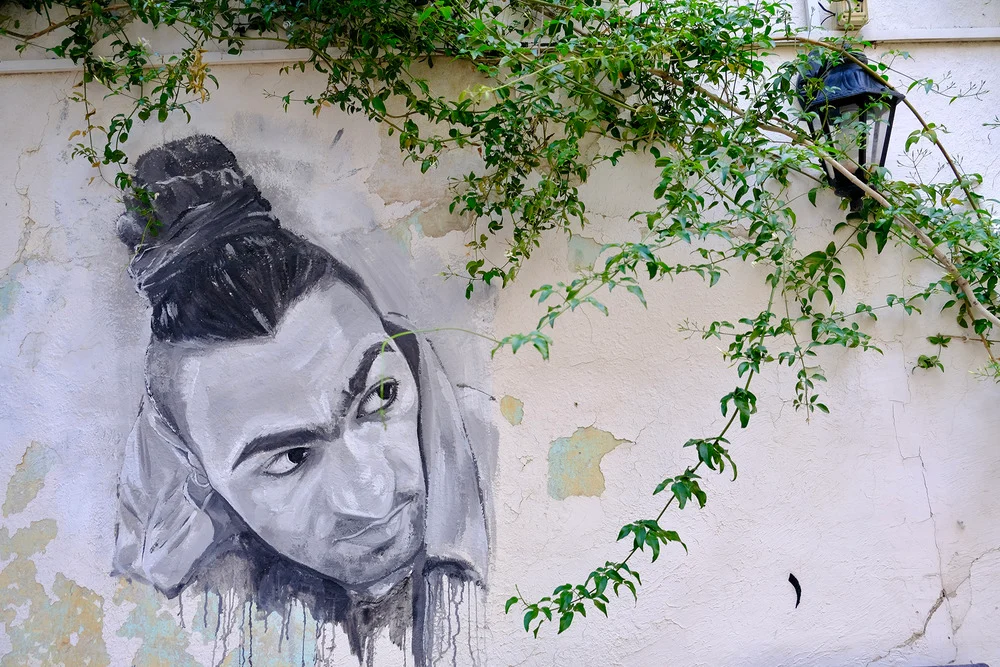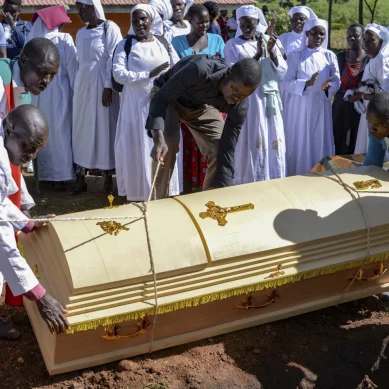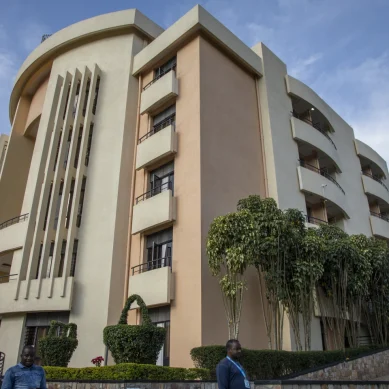
Adam Jawad escaped Iraq with his family following the US-led invasion in 2003, living in Syria until war forced him to flee again a decade later, this time to Jordan, where he eked out a living doing odd jobs and working at a cultural centre in the capital, Amman.
Jawad wrote scripts for short movies and sometimes performed as a DJ and rapper, but he felt his aspirations were impossible to realise and saw no future for himself in Jordan. Without the freedom to travel outside the country, and unable to find the support he needed to cope with trauma and displacement, despair took over.
“Amman is a prison,” he wrote in his last post on social media, a few hours before he ripped out the pages from his Iraqi passport and took his own life last November. He was just 27.
A rising number of people in Jordan are choosing to end their lives. The government’s National Institute for Forensic Medicine registered 169 suicides in 2020 – the highest number in a decade (and the latest year for which official statistics are available) – but experts believe the real numbers are probably much higher, since deaths by suicide are often underreported due to the stigma of discussing the issue.
While it’s not easy to pinpoint the exact cause, life is becoming increasingly difficult for many in the country. Unemployment rates have soared to nearly 25 per cent, reaching 48 per cent among youth. Last February, young Jordanian men protesting against unemployment threatened to take their own lives if their demands for jobs were not met.
Then there are the rising rates of depression among refugees, many of whom carry the trauma of war and prolonged displacement, paired with a critical lack of support.
The government’s response to the crisis has been to criminalise public suicide attempts. Last month, Jordan’s parliament approved an amendment to the country’s penal code, which would punish attempted suicide in public spaces with up to six months in jail, as well as a fine of 100 Jordanian dinars ($140).
The law still needs to be ratified by King Abdullah II, who holds the power to promulgate all laws passed by parliament’s two houses.
Jordan’s Prime Minister Bisher al-Khasawneh has defended the law as a way to “protect the right to life” and “maintain public security”. But for people like Dr Walid Sarhan, a psychiatrist who has spent decades campaigning for mental health awareness in Jordan, the government’s proposal to criminalise suicide attempts in public is “a catastrophe”.
Sarhan worries that the law will punish and incarcerate people who are sick, and discourage many from looking for help when they may need it most.
“Instead of punishing people who attempt to commit suicide, we should be focusing on improving mental health services,” Sarhan observed.
There is only around one psychiatrist for every 100,000 people in Jordan, according to the World Health Organization. In addition to services provided by public hospitals and private clinics, just a few NGOs provide mental health services and psychosocial support to refugees and vulnerable Jordanians who are unable to afford treatment. But Sarhan says needs far exceed the services provided.
“Public hospitals are understaffed and overcrowded,” he said. “Services need to be upgraded and we need more training and investment, but very little has been done to improve mental health care over the last two decades,” he said.
According to a 2020 report by the International Medical Corps, most people with symptoms of mental illness in Jordan do not ask for help, and very few follow up with treatment. Other recent studies of mental health services in the country found that financial limitations, stigma, and poor accessibility to – and shortages of – mental health professionals were the main barriers to treatment.
These obstacles pose a particular challenge for Jordan’s refugee population – one of the world’s largest in terms of proportions of refugees per capita. More than 760,000 refugees, mostly from Syria and Iraq, are registered with the UN’s refugee agency, UNHCR, but the unofficial number is estimated at around 1.3 million.
The consequences of the prolonged Covid-19 pandemic and deteriorating socio-economic conditions have been particularly hard for these communities; about 80 per cent of Jordan’s refugees live below the poverty line, with 60 per cent in extreme poverty.
UNHCR surveyed refugees who do not live in camps earlier this year, and 28 percent said they experienced high or severe levels of depression.
“Consultation rates increased by over 50 per cent in 2021, the mental health situation deteriorated, [and] there are increasing reports of suicide attempts and suicidal thoughts,” said Ahmad al-Shibi, who coordinates International Medical Corps’ Mental Health and Psychosocial Support programme for refugees and vulnerable Jordanians.
The organisation runs psychotherapeutic care centres across the country, providing free services to about 8,000 patients a year.
“There are more people in need of mental health services, but at the same time there is donor fatigue,” said al-Shibi. “Jordan is facing a difficult situation because needs are increasing, but funding is being reduced.”
- The New Humanitarian report











